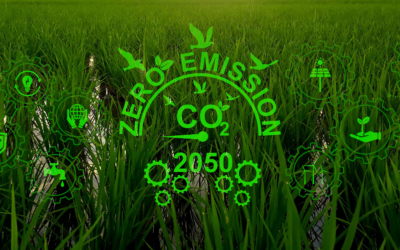Sustainability in the Finishes and Interiors Sector
FIS is committed to taking a pro-active lead, not just in supporting the UK ambition to net zero carbon by 2050, but delivering profound transformation within our supply chain on all aspects of ethical and environmental sustainability.
In this toolkit we look at some of the key actions that you can take and also some of the wider sector initiatives that can support your business in setting a sustainability strategy. The aim is to support companies in meeting the ethical and environmental aspects of sustainability considered from the three dimension of planet, people and profit across the entire construction supply chain. Definitions of sustainability do vary, but focus is on where our sector can make a positive impact in line with the UN Sustainability goals and the Net Zero agenda in the UK.
FIS 10 Golden Rules for Waste Reduction
Introducing Sustainability
General Principles
Relevant Literature
Reuse
FIS Pre-Cycle Agreement
The FIS PreCycle agreement provides a direct link between the manufacturer and user of a construction product to ensure that at end-of-service-life, the material can be recovered, repurposed, recycled or processed in the most environmentally way by keeping the product at its highest value application and importantly avoiding landfill.
Sector Specific Activities
Flooring
Plasterboard
Ceilings
Training
FIS has partnered with the Supply Chain Sustainability School
Zero carbon resources for finishes and interiors
Free-to-access training materials, videos, webinars and resources.
FREE sustainability learning pathway “‘FIS Sustainability Awareness: Doing Business Better”.
Start your Net Zero journey with a free assessment
Working with the Supply Chain Sustainability School FIS supported the development of this new assessment is based on what the company is doing in sustainability rather than their knowledge. We would like to encourage our members to use this tool. The plan longer term will be to use the tool to map our collective journey to net zero and help members benchmark their own efforts. calculating your organisational footprint and assessing your companies capability.
More resources to help you understand sustainability in the finishes and interiors sector
Sustainability related to your activities
Sustainability related to your organisation
Sustainability Headlines
Knowledge of careers in construction remains concerningly low
As part of the Skills for a Sustainable Skyline Taskforce Work, educational charity Class of Your Own ran a short survey to gather views of teachers and students in years 8 to 11 from schools in the London area on their views and understanding of careers in...
CPA response to the Prime Minister’s climate policies announcement
Following the Prime Minister’s speech on 20 September on climate policies, the Construction Products Association has welcomed that the ambition of Net Zero by 2050 has not changed; indeed, most policies remain unchanged. The CPA is urging the Government to continue...
Extended Producer Responsibility Regulations on Packaging Waste
The Government recently announced that it would delay the introduction of the producer EPR payments for one year and these will not now apply until October 2025. However, companies will still be required to report and submit their packaging data for 2023. See...
The Great CAT A debate
The construction industry is a big contributor of carbon emissions. The industry is also a big consumer of resources - a staggering 60 million tonnes of waste is generated per year. While 90% of wastes are recycled, much gets down cycled as low value applications. The...
Getting to grips with how circular economy practices can provide solutions
With mounting pressure on the built environment sector to reduce embodied as well as operational carbon emissions, the industry needs to get to grips with how circular economy practices, such as reuse, can provide solutions. The Alliance of Sustainable Building...
Measuring Embodied Carbon and Carbon Leakage
Members of the FIS sustainability group have come together to respond to the Government consultation on addressing carbon leakage risk to support decarbonisation – see: Addressing carbon leakage risk to support decarbonisation As part of its plan to measure and reduce...
FIS Events
Path to Net Zero
The CLC Roadmap to Recovery has laid out proposals to secure the future of construction, while setting the industry on a sustainable path towards recovery. But what does this mean to projects in our sector.
Calculating your carbon footprint
As the industry is becoming more aware of the urgency to work towards net zero carbon targets, it is important that organisations start measuring their carbon footprint.






